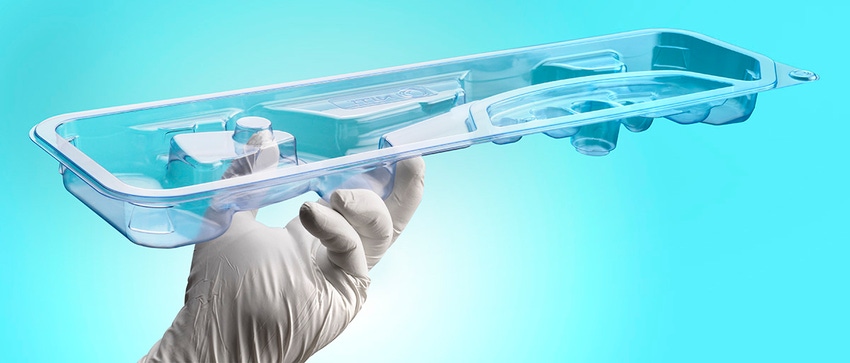July 25, 2017

Nelipak Healthcare Packaging has joined The Healthcare Plastics Recycling Council (HPRC). Nelipak, a global provider of custom thermoformed packaging for medical devices and pharmaceuticals, recognizes “the responsibility as packaging manufacturers to take the environmental impact of our products into consideration as we work with our customers to create more sustainable products,” said Seán Egan, director of global marketing, Nelipak Healthcare Packaging. "Nelipak can not only help medical device OEMs make more informed decisions about packaging material selection, but is also often able to reduce the total amount of plastic used."
Nelipak plans to work closely to promote the work of the HPRC among its customers and suppliers, “creating awareness of the need to divert more plastic from landfills,” Egan tells PMP News. “Nelipak will examine ways of helping hospital staff more readily segregate waste material through education programs and clearer marking of thermoformed rigid packaging to help remove uncertainty on the material composition of the plastic used in the trays. We will also look to work with material suppliers to educate and promote the need for higher uptake of waste material by recyclers that can be used in non-medical applications.”
To help OEMs create more efficient and environmentally responsible packaging, Nelipak evaluates packaging beyond the initial need to protect the device to the point-of-use, says Egan. “This starts with optimizing the design to reduce the amount of material used in the manufacturing process, which in turn requires less material and energy to produce the part,” he explains. “Using simulation tools, we can streamline the package footprint to increase load efficiency during transportation from our facility to the customer’s loading bay. These same tools help customers lower their cost of ownership in their internal processes by requiring less energy in handling, sterilization and transportation to the clinical environment.”
Reducing the number of packaging components can also help. “Nelipak continues to innovate packaging by using fewer components,” he says, pointing to the example of putting laser-etched instructions directly on trays thereby removing instructional leaflets from the mix. “We also look to develop trays that become part of procedures in the surgical theatre, thus removing the need for additional containers,” he adds.
Recently Nelipak reduced the overall footprint of a packaging assembly for screw sets and plates compared with the previous packaging by using sealed trays instead of pouches, Egan says. “The new design decreased packaging volume by 40% for plates and 240% for screws. The previous packaging only held one screw at a time; the new pack holds three items (i.e., two screws and one locking screw); this removes four pouches from the waste stream. Additionally, extending product shelf life reduces the amount of un-used product that goes to waste.”
Innovating during the early stages of development could help result in recyclable packaging. “Nelipak becomes an extension of its customers’ packaging development team, taking on expanded roles in design, development, and testing,” says Egan.
Nelipak’s expanding global footprint also plays a role. “Having multiple global manufacturing sites puts Nelipak closer to our customers, reducing our carbon footprint for shipping,” Egan says.
Peylina Chu, director of HPRC, says in a news release that “as a manufacturing leader in healthcare packaging, Nelipak offers important insights into new technologies and design best practices that can help increase the recyclability of these materials. Their input and wide range of expertise will be vital in helping support our goal of increasing the overall recycling of healthcare plastics.”
Other HPRC members include Baxter, BD, Cardinal Health, DuPont, Eastman Chemical Company, Johnson & Johnson, Medtronic, and Ravago Recycling Group.
For more details, visit https://www.hprc.org or www.nelipak.com.
Be sure to visit Nelipak at the upcoming Medical Design & Manufacturing Minneapolis expo November 8-9 at Booth #1316.
About the Author(s)
You May Also Like




